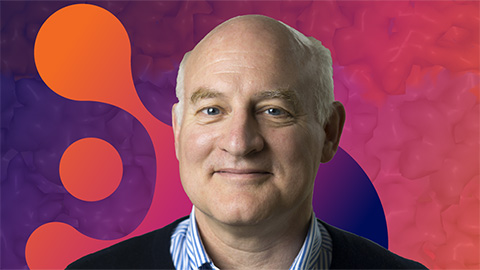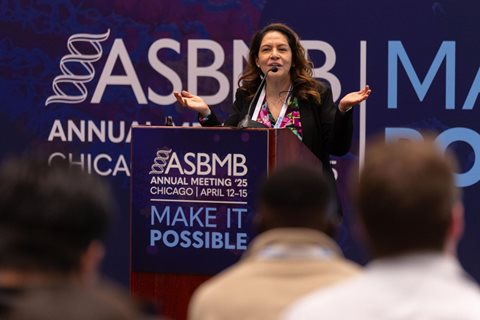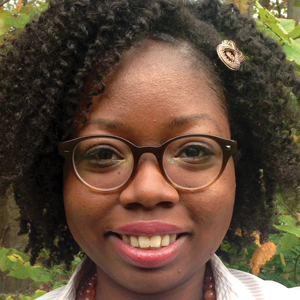As Election Day nears, a look at science policy careers
Since Election Day is quickly approaching (Tuesday, Nov. 5), this week is a great time to focus on science policy careers. According Geoff Hunt, a past ASBMB science policy fellow, science policy is a combination of science writing, communication and advocacy. With the heat of our current political climate, scientists who were traditionally silent are coming forward to March for Science to showcase #ScienceNotSilence as they stand up for science policy concerns. Will you stand up too?
How to prepare for a science policy career
Get involved.Attend science policy seminars to learn and connect with science policy professionals. Join the ASBMB’s Public Affairs Advisory Committee (PAAC) to learn more about the government’s role with modern science or participate in Capital Hill Day. If you are looking for more training apply to the ASBMB Advocacy Training Program, a six-month externship for scientists to gain advocacy training, learn about federal laws and budgets.
Think like a science policy expert
Ask questions. Science policy experts are problem solvers. How can we make science education better? How can we help graduate students who don't have health coverage? Take it a step further and enroll in a beginner policy course like "Public Policy Changes of the 21st Century" offered by The University of Virginia on Coursera.org. This is a nine-week course that is flexible to fit your schedule.
Strengthen your communication skills
Read and write a lot. Follow blogs, like the ASBMB Science Policy Blotter to stay up to date with science policy news and follow Twitter accounts, like Science Policy Jobs . If you are looking for writing opportunities contact Comfort Dorn, ASBMB Today's managing editor at cdorn@asbmb.org.
Apply to science policy fellowships
Get experience. Many scientific societies have fellowships in Washington, D.C. They usually are paid positions lasting one to two years and include training in a specific science policy area and access to resources.
-
The Optical Society has the Arthur H. Guenther Congressional Fellowship. Fellows work at the office of a U.S. senator or representative to gain firsthand knowledge of how Congress works and handles science policy. Requirements: A Ph.D. in a scientific discipline and knowledge of science communities. Deadline: Jan. 3.
- The California Council on Science & Technology Science Fellowship focuses on working with legislators to evaluate complex scientific issues and interpret data. Requirements: A Ph.D. and an interest in California's science and technology legislation. The application period begins Dec. 1 and ends on Feb. 28.
- The Institute for Defense Analyses science policy fellowship lasts two years and focuses on science and technology policy-driven analysis. Requirements: Recent bachelor's or master's degrees in the sciences. (Bachelor’s degree must be conferred between May 2018 and July 2020). Deadline: Jan. 11.
- The American Society of Human Genetics' fellowship focuses on genetic-related health and research policies at the national level. Requirements: An advanced degree in genetics or related field/understanding of genetics. Applications will be accepted starting in late February.
Science policy jobs
Science policy reporters write about the intersections of scientific discoveries and policies.
- The American Institute of Physics (College Park, Maryland) is hiring a science policy reporter to write, edit and publish content. Required: Bachelor's degree with at least three years of science policy, science writing or policy reporting experience.
Policy analysts have knowledge of laws, regulations, policies and procedures.
- The National Institutes of Health has an opening for a health science policy analyst.
- The University of California, Berkeley, is hiring a project policy analyst (7398U) to conduct research and evaluation studies on STEM educational initiatives. Required: A bachelor's degree with STEM education experience, but a Master's degree is preferred. Also, proficiency and/fluency in Spanish is preferred.
Public affairs professionals communicate with lawmakers, stakeholders, partners and media about policy and advocacy efforts.
- The ASBMB is hiring a public affairs manager to manage the society's Public Affairs Advisory Committee operations and work with the public affairs leadership team to execute the society's advocacy programs, including its annual Capitol Hill Day. Required: A bachelor's degree in the biomedical sciences or public policy. Experience in science and/or public policy is also required.
- The American Society for Microbiology has an opening for a federal affairs specialist who has a passion for advocating for issues that impact the microbial sciences community. Required: A Bachelor's degree required. A Master's degree in science or public policy is preferred. Plus, 5 years working with professional or scientific advocacy.
Director positions are the senior-level, leadership positions of a science policy team.
- The American Association for Cancer Research has an opening for an assistant director for science and health policy. Requirements: A master's degree in science, health or policy. A Ph.D. or M.D. in science or health-related field is strongly preferred. Also, five or more years of experience in science and/or health policy related to the environment is required.
For more ASBMB science policy resources, click here.
Enjoy reading ASBMB Today?
Become a member to receive the print edition four times a year and the digital edition monthly.
Learn moreFeatured jobs
from the ASBMB career center
Get the latest from ASBMB Today
Enter your email address, and we’ll send you a weekly email with recent articles, interviews and more.
Latest in Careers
Careers highlights or most popular articles

Building the blueprint to block HIV
Wesley Sundquist will present his work on the HIV capsid and revolutionary drug, Lenacapavir, at the ASBMB Annual Meeting, March 7–10, in Maryland.

Upcoming opportunities
Present your research alongside other outstanding scientists. The #ASBMB26 late-breaking abstract deadline is Jan. 15.

Upcoming opportunities
Present your research alongside other outstanding scientists. The #ASBMB26 late-breaking abstract deadline is Jan. 15.

Designing life’s building blocks with AI
Tanja Kortemme, a professor at the University of California, San Francisco, will discuss her research using computational biology to engineer proteins at the 2026 ASBMB Annual Meeting.

Upcoming opportunities
#ASBMB26 late-breaking abstract submission opens on December 8. Register by Jan. 15 to get the early rate on our Annual Meeting.

Make your abstract stand out
Ensure your research is impossible to overlook. Get quick, practical reminders for crafting an abstract that attracts readers and helps you build connections at the conference.


